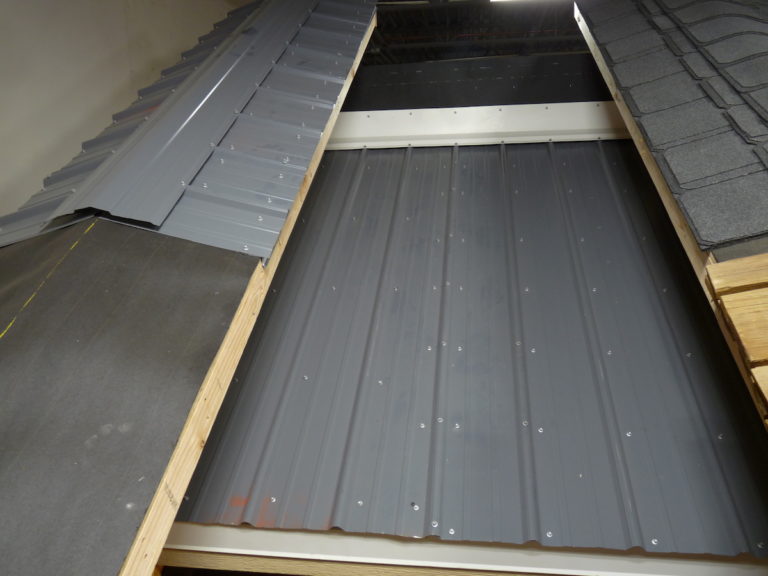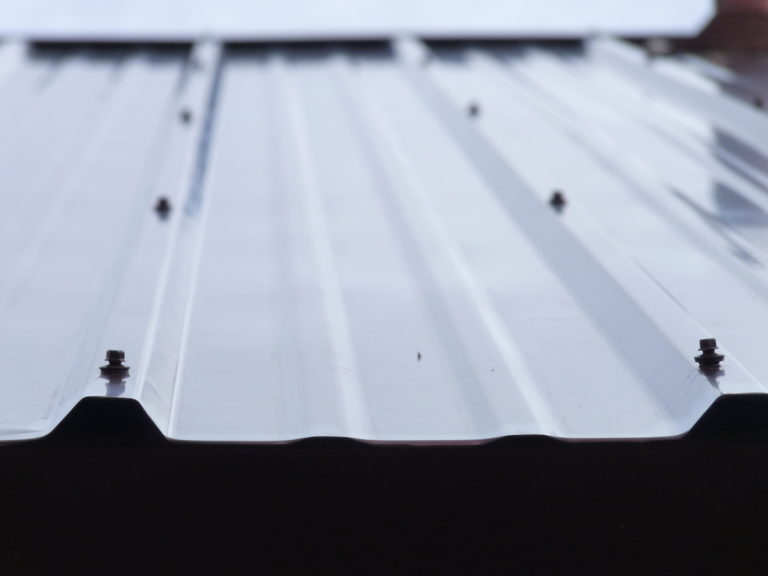STANDARDS OF PRACTICE
The International Standards of Practice for inspecting the roof system is located at www.nachi.org/sop.
MASTERING ROOF INSPECTIONS
To learn about inspecting roofs, please visit Mastering Roof Inspections.
METAL ROOF

This is an exposed fastener metal roof. Defects are as follows:
Fastening
Screws should be a gasketed type and be installed at the lowest portions of the roofing profile.
OBSERVATION

The red arrows point to screws installed in the highest portions of the roofing. This is typical of homeowner installation. Screws installed in this manner will have inadequate resistance to withdrawal (reduced wind resistance), and over time, will back out and protrude. This is what you would report.
OBSERVATION

Note: Notice that the screws backed out are near the roof edge where uplift is strong. Once they come loose the wind will more easily penetrate and inflate the space between the metal roofing and underlayment. The combined forces of uplift and inflation are more likely to tear panels off the roof than either force alone.
In areas designated high-wind, you would recommend installation of additional fasteners at proper locations. In normal wind areas you might make the same recommendation, or recommend re-tightening of fasteners on an annual basis. Or you might give your client a choice.
Flashing
This is inexpensive metal roofing commonly available at home depot. No Sidewall flashing is installed because sidewall flashing for this roofing material is not always commonly available at home depot. Its omission is a defect.
Cut Panels
Panels that have been cut should have the cut areas primed and painted to help prevent the development of corrosion.
